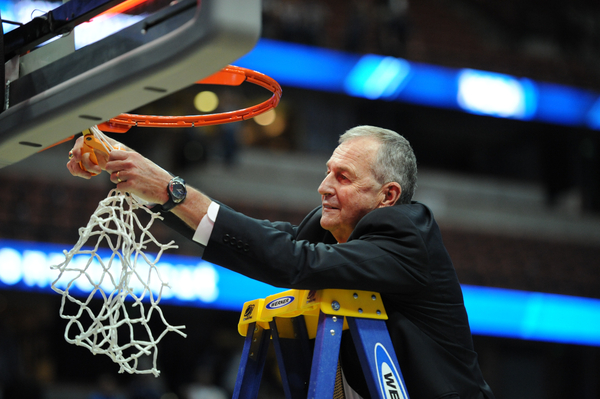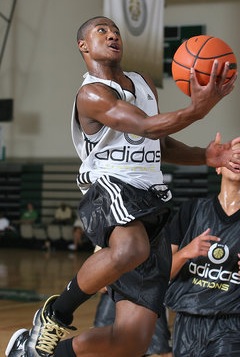Morning Five: 05.10.12 Edition
Posted by nvr1983 on May 10th, 2012- The biggest news to release on Wednesday was that the ACC has renegotiated its television rights deal with ESPN in light of the fact that it has added two additional members. The twin poaching of Pittsburgh and Syracuse from the Big East last year will result in a 32.9% increased annual payout for each school — from an average of $12.9M to $17.1M — proving that the new reality of cable channels willing to pay exorbitant amounts for college sports isn’t drying up anytime soon. The total amount ESPN paid for the rights to ACC football and basketball through 2026-27 is $3.6 billion, ensuring that Dookie V. will remain in his catbird seat at Cameron Indoor Stadium for the rest of his life.
- Realignment has allowed the ACC and the Big 12 (reportedly) to re-negotiate their television deals in their favor this week, so it’s unsurprising that further positioning is already under way. Chip Brown at Orangebloods.com floated a scenario yesterday that suggests the ACC’s Florida State could find a better deal over in the Big 12 ($19M per year), a conference that might also allow the Seminoles to develop its own Longhorn-style network (worth another estimated $5M per year). Very little would surprise us at this point, and the dollars talk — for the better part of two decades, FSU has seemed a strange fit in the basketball-centric ACC, so a jump to the Big 12 with no invitation to the SEC forthcoming seems just as reasonable as anything else. Maybe they could go west as a package deal: According to Andy Katz’s report from the new Big East commissioner’s conference call on Wednesday, Louisville has informed the other schools in its league that they’re gone at the first decent offer (presumably from the Big 12 or ACC). We’re sure there will be no shortage of this chatter for the next, oh, four months.
- Open and notorious solicitation of a school wanting to join a new conference isn’t confined only to the power leagues, of course. Oakland University (located in metro Detroit, not northern California) is hoping for consideration to replace Butler in the Horizon League when the Fighting Brad Stevenses move on to the Atlantic 10 after next season. A decade ago local rival Detroit, not wanting to share geographic space within the same league, managed to keep Oakland out — whether they’ll be able to turn down a program out of the Summit League that has made the NCAA Tournament three times in the last eight years remains to be seen. But it appears to be a natural fit if Detroit can find a way to play nice.
- With the coaching carousel winding down (only three jobs open currently), Jeff Goodman rates some of the notable coaching hires of this offseason. Although he doesn’t give actual grades to the decisions thus far, it’s interesting that he writes that the Larry Brown hire at SMU is the one where he’s “Not sold… yet.” In reading through this list, though, perhaps the most striking thing in a year where there have been 43 coaching openings so far, is that brand-name jobs have quite simply not been available. Which was the best opening — Virginia Tech? Kansas State? It has definitely not been a good year for aspiring young coaches to trade up — at least, not yet.
- It wasn’t a 1500-word missive to make his case for ‘nontraditional’ scheduling for a ‘nontraditional’ yet tradition-rich program, but Indiana’s Tom Crean on Wednesday gave his side of the story in the Great Scheduling Debate involving Kentucky and IU’s terminated home-and-home series. Crean basically argues that Indiana is already playing several neutral site games with the Crossroads Classic in Indianapolis and whichever exempt tournament that it is invited to in a given season (e.g., next year’s Legends Classic), so it doesn’t make sense for the Hoosiers to play yet another neutral site game with Kentucky. He also reminds everyone that it was the Wildcats, not the Hoosiers (both under different head coaches at the time, who moved the game back on campus in the mid-2000s after a 15-year run at neutral venues. As we argued on Tuesday, though, the notion that teams should play as many as a quarter of its pre-NCAA schedule in neutral venues seems a bit ridiculous to us, but we’re mostly bitter about the loss of one of the best regional rivalries in college basketball, so don’t mind us.
















































